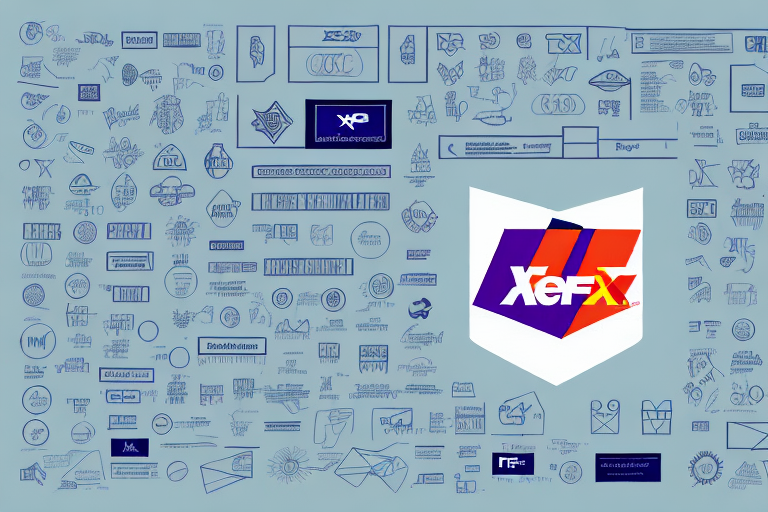Understanding FedEx Pickup Exceptions
If you're a frequent shipper with FedEx, you've likely encountered a pickup exception at some point. These exceptions can disrupt your shipping schedule and cause significant delays. In this article, we'll delve into the common causes of FedEx pickup exceptions, strategies to avoid them, and actions you can take if they occur.
What Are FedEx Pickup Exceptions?
FedEx pickup exceptions happen when an issue arises during the pickup of your shipment, potentially delaying or canceling the shipment. Common reasons include:
- Package weight or size restrictions
- Incorrect labeling
- Driver access restrictions
- Prohibited items
- Incorrect pickup date or time
Ensuring your shipment meets all FedEx requirements can help prevent these exceptions. This includes proper labeling with accurate address and tracking information, adhering to weight and size limits, and communicating any special pickup instructions.
Common Causes of Pickup Exceptions
Incorrect Labeling
Labels that are missing, illegible, or contain inaccurate information can prevent the driver from locating or processing your package. Always double-check labels for clarity and accuracy.
Package Size and Weight
Exceeding FedEx's size and weight restrictions may result in the driver being unable to handle or transport your package. Refer to FedEx's packing guidelines to ensure compliance.
Driver Access Restrictions
Locations with locked gates, restricted access, or other barriers can prevent drivers from reaching your shipment. Providing clear and detailed access instructions can mitigate this issue.
Prohibited Items
Shipping prohibited items can lead to pickup exceptions. Familiarize yourself with FedEx's list of prohibited items to avoid any complications.
How to Avoid FedEx Pickup Exceptions
Ensure Proper Labeling and Packaging
Double-check that all labels are clear, legible, and correctly placed. Use appropriate packaging materials to protect your shipment and comply with FedEx’s size and weight requirements.
Schedule Pickups in Advance
Booking pickups well ahead of time allows ample time to prepare your shipment and make any necessary adjustments. This reduces the likelihood of last-minute issues that can lead to exceptions.
Communicate Special Instructions
If your pickup location has specific access requirements or restrictions, provide detailed instructions to FedEx in advance. Clear communication helps drivers navigate any potential barriers.
Use FedEx Tools and Resources
Utilize FedEx tools such as the Shipment Manager to schedule pickups, track shipments, and manage any issues proactively.
Impact of Pickup Exceptions on Your Business
Pickup exceptions can lead to delays in your shipping schedule, potentially affecting customer satisfaction and your business's reputation. Timely deliveries are crucial for maintaining trust and repeat business.
According to a 2023 Statista report, 78% of customers prioritize reliable shipping when choosing a service provider. Addressing pickup exceptions promptly helps ensure your business meets customer expectations.
How to Address FedEx Pickup Exceptions
Review the Exception Message
FedEx provides specific information about why a pickup exception occurred. Carefully review this message to understand the root cause and determine the necessary corrective actions.
Correct Labeling or Packaging Errors
If the exception is due to incorrect labeling or packaging, update the relevant details and reschedule the pickup. Ensure all information is accurate to prevent further delays.
Adjust Pickup Details
For issues related to pickup time or location, modify the pickup request accordingly. Use FedEx’s online tools to reschedule pickups at a more convenient time or alternative location.
Contact FedEx Customer Service
If you're unable to resolve the exception on your own, reach out to FedEx customer service for assistance. Provide your tracking number and relevant shipment details to expedite the resolution process.
Best Practices for Managing FedEx Pickups
- Double-check labels and packaging before scheduling a pickup.
- Avoid including prohibited items in your shipments.
- Provide clear driver access instructions in pickup requests.
- Schedule pickups well in advance to allow for preparation.
- Regularly monitor your shipments for any issues or exceptions.
Implementing these best practices can significantly reduce the risk of pickup exceptions and ensure a smoother shipping process.
Tips for Planning Your Shipment Schedule
Create a Backup Plan
In case of unexpected delays or issues, having a backup plan ensures that your shipments continue to move smoothly. Consider alternative pickup times or locations to accommodate unforeseen circumstances.
Monitor Shipment Status
Use FedEx’s tracking tools to stay informed about the status of your shipments. Promptly addressing any issues that arise can help prevent minor problems from escalating into major delays.
Regularly Update Shipping Practices
Stay informed about any changes in FedEx’s shipping policies or guidelines. Regularly updating your shipping practices ensures continued compliance and reduces the likelihood of exceptions.
Conclusion
Understanding and addressing FedEx pickup exceptions is crucial for maintaining an efficient shipping schedule and ensuring customer satisfaction. By following best practices, diligently preparing your shipments, and effectively communicating with FedEx, you can minimize the risk of exceptions and keep your business operations running smoothly.








